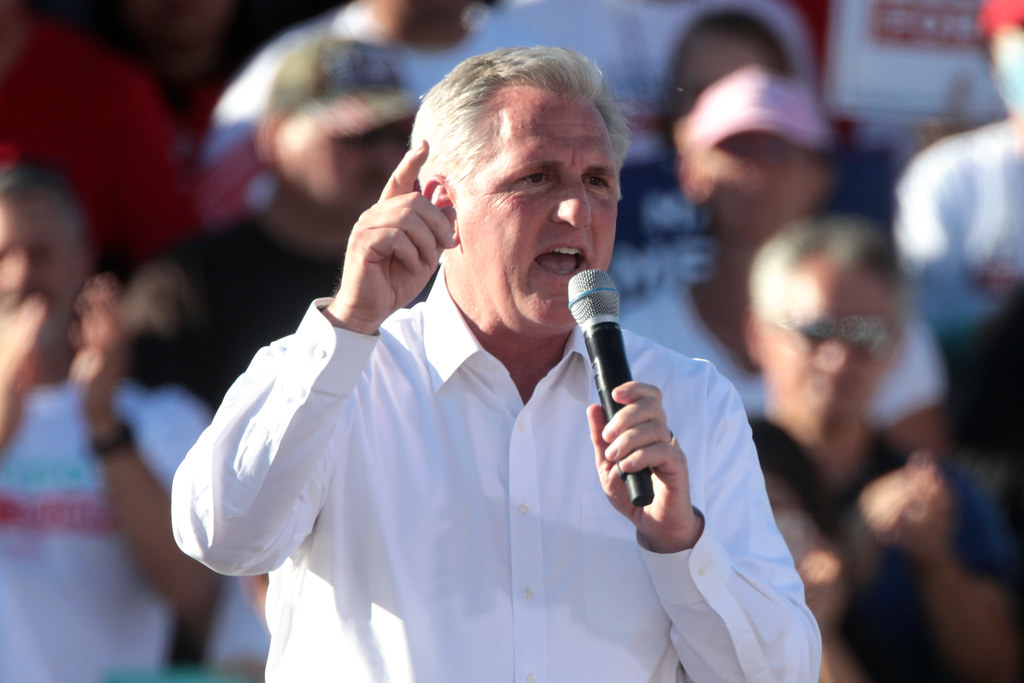The 2023 Debt Ceiling Crisis, Explained

To put it simply, the current debt ceiling crisis is occurring because the United States Congress is failing to pass legislation to raise the ceiling. The debt ceiling is an upper spending limit set by Congress to limit borrowing and spending by the Treasury. Raising the debt ceiling is not a foreign concept to Congress, the debt ceiling was raised twice to a total of $3.9 trillion by the Trump Administration, so precedent is not the issue. Rather, it is the promises made during the election for Speaker of the House that cannot be kept. After the 2022 midterm elections, the Grand Old Party (GOP)—or the Republican Party—holds the House majority over the Democrats, allowing them to nominate a new candidate for speaker of the House of Representatives. Their nominee was California's Rep. Kevin McCarthy.
Generally, once a nominee is announced, there is a House vote for speaker, the speaker is sworn in and then the congress floor is opened. By long tradition, each representative votes for their own party leader, so the party in majority is able to automatically elect their nominee into the speaker position.
However, in the 2023 speaker election, we saw the first speaker fight since 1923. This was due to 20 'extreme' (or far-right idealist) GOP representative holdouts who negotiated conditions that must be met in order for them to vote McCarthy into the speaker position. Neither the holdouts nor McCarthy wanted to yield to the other side, so the House went through 14 speaker votes and 4 days of voting for the speaker before McCarthy yielded a number of conditions upon which the holdouts voted him in.
This is where the promises made in that election matter: one of those conditions was that McCarthy would not ask the House to raise the debt ceiling until he produced a budget that would zero over-budget spending and begin to pay back the debt over the next 10 years. This is virtually impossible.
The current US federal debt sits at roughly $31.6 trillion, and the 2022 fiscal federal spending was $6.27 trillion. In theory, sure, they could cut all spending in the entirety of the budget to 0 to pay back the debt, but we all know that's simply not possible. Even if they were to, say, cut out all of the U.S. military budget of roughly $800 billion, it would not make a dent in this debt. There is no reasonable way to cut the debt without impeding on government resources such as Medicare, social security, health or education, or to implement heavy tax on US citizens, all of which McCarthy promised not to tamper with. The Biden Administration has agreed that while budget cuts are necessary, they will not negotiate these cuts at this moment and expect a positive vote on raising the ceiling.
House Republicans have a plan for a responsible debt ceiling increase.
The Senate does not.
President Biden cannot continue to ignore this crisis. It’s time for him to come to the table, or risk bumbling into the first default in our nation’s history. pic.twitter.com/QalrKGXQfF— Kevin McCarthy (@SpeakerMcCarthy) April 19, 2023
The consequence to not passing the ceiling raise would be to default on the debt, which in basic terms, is a failure to repay debt. This doesn't seem dooming when phrased simply, because the reality is that default would cause internal and global market crashes, something no one wants. This is where the ever looming question of who does the federal government owe comes to fruition.
Roughly $24.3 trillion of the country's debt is held by the public. Public debt in this definition is any debt "held by any person or entity that is not a U.S. federal government agency," according to the Treasury department. These entities include individuals, corporations, state or local governments, foreign investors, foreign governments and Federal Reserve Banks. A third of this public debt is held by foreign governments, including Japan, China, Canada, Germany, the United Kingdom, Ireland and France. Think of these entities as investors, putting funds into American stocks, jobs, infrastructure, and so on.
The rest of the debt is held by intra-governmental institutions. This is basically the Treasury owing money to other federal agencies such as The Social Security Trust Fund or National Defense. This occurs when a federal agency takes in more tax revenue than necessary. The leftover tax money gets invested into the Treasury, which then gets spent, which then turns to debt the Treasury cannot repay. Intra-governmental institutions are owed roughly $6.89 trillion of the debt, money the government owes back to itself.
This is what is so dooming about debt default. If the U.S. defaults on its debt, it would cause all government spending to pause. The Treasury would fail to pay back both intra-governmental and public debt, which would cause programs like Social Security and Medicare to fail and those foreign governments to lose billions or trillions of dollars. Both of these actions would tank internal and global economies, a tragedy no one wants to see.
House Speaker Kevin McCarthy unveiled a plan to raise the debt ceiling into next year, slash federal spending by possibly $130 billion and unwind some of President Biden’s legislative accomplishments, including his program to cancel college student debt https://t.co/9HixbW8IJh
— The Washington Post (@washingtonpost) April 19, 2023
The good thing is, trusting that the GOP holdouts will eventually concede, the debt ceiling raise will be passed by Congress without severe budget cuts or a plundered economy. The House has until around early July to pass the ceiling raise, of which time the Treasury will run out of emergency spending and the budget defaults. The lesson learned here: don't make promises you can't keep and don't ask for goals that can't be met, especially when the entirety of the global economy lies in your hands.





